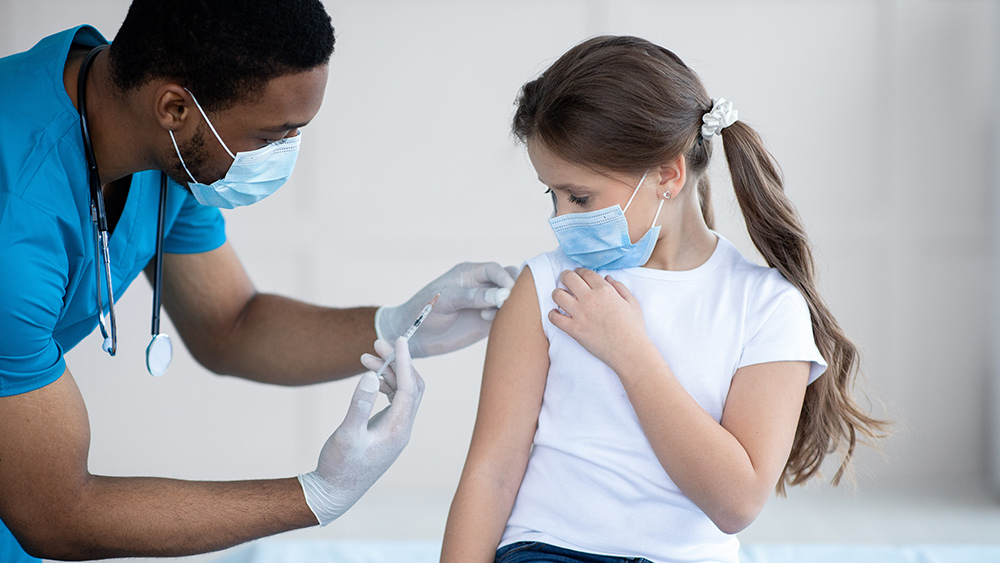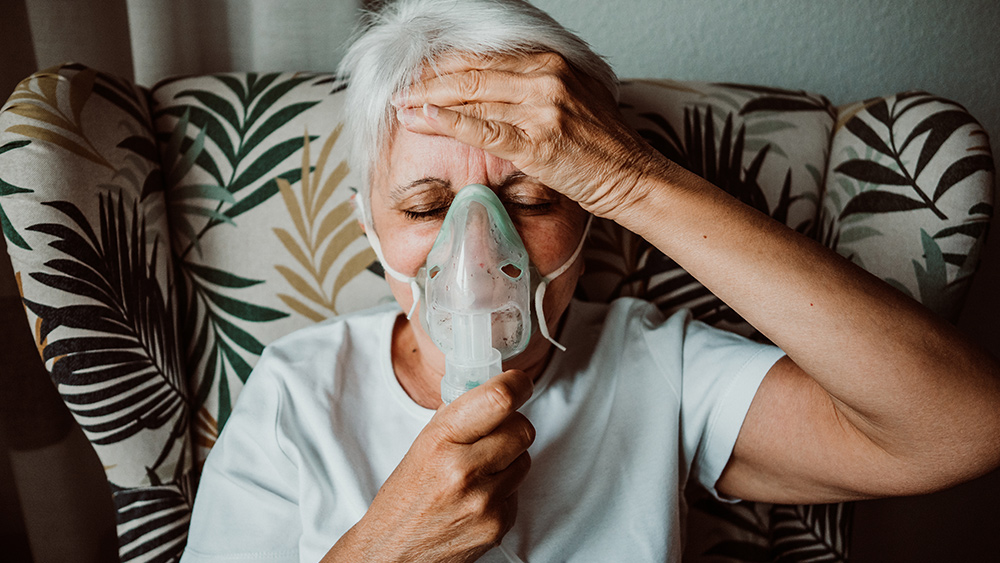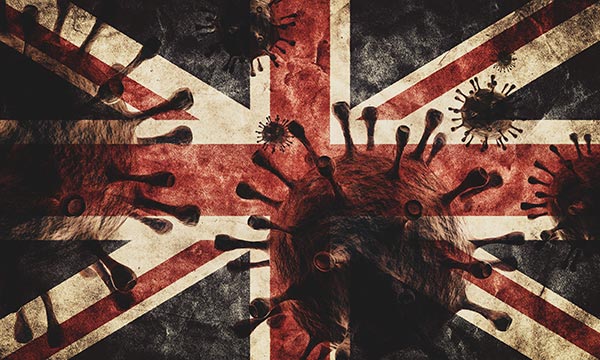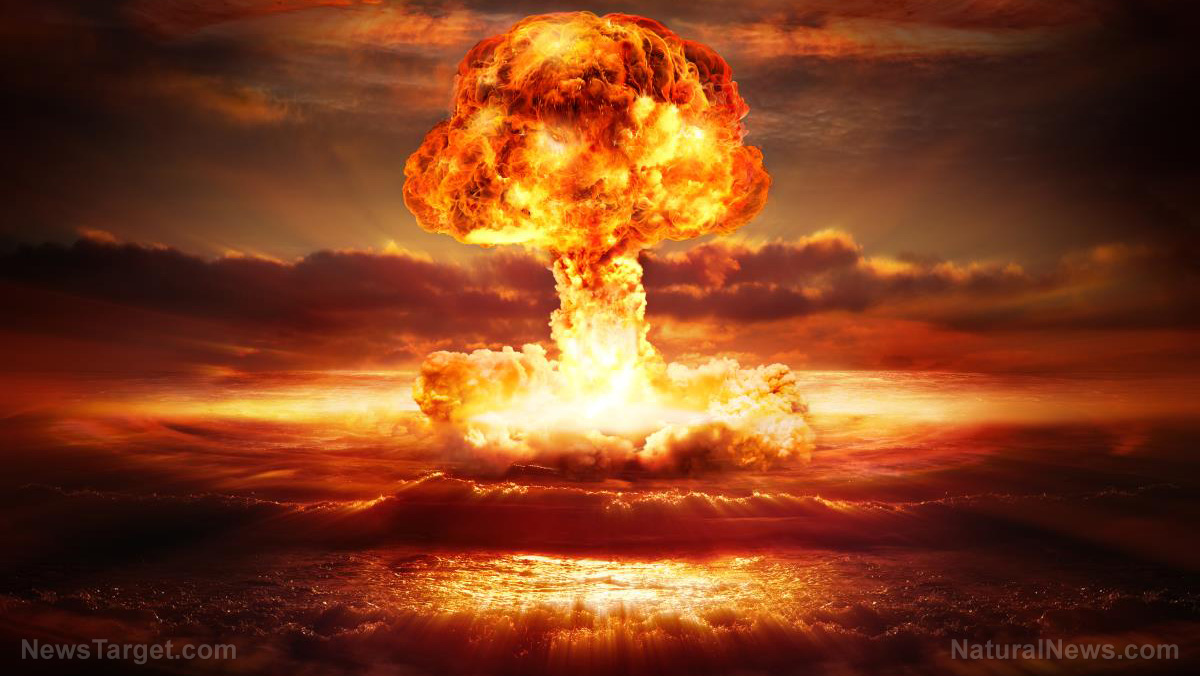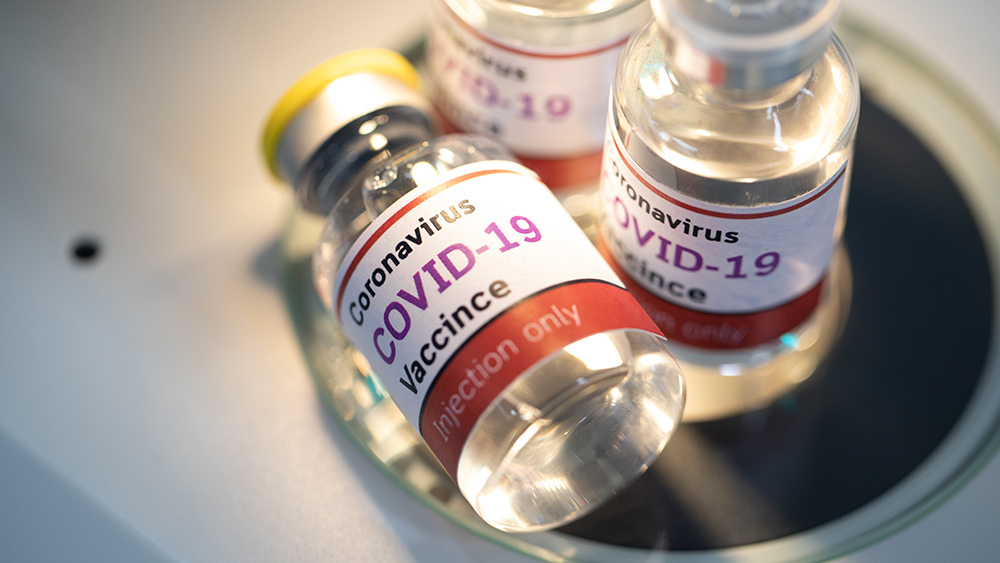Biden claims gun makers only industry that can’t be sued, fails to mention blanket liability for COVID vaccine makers
03/14/2022 / By News Editors
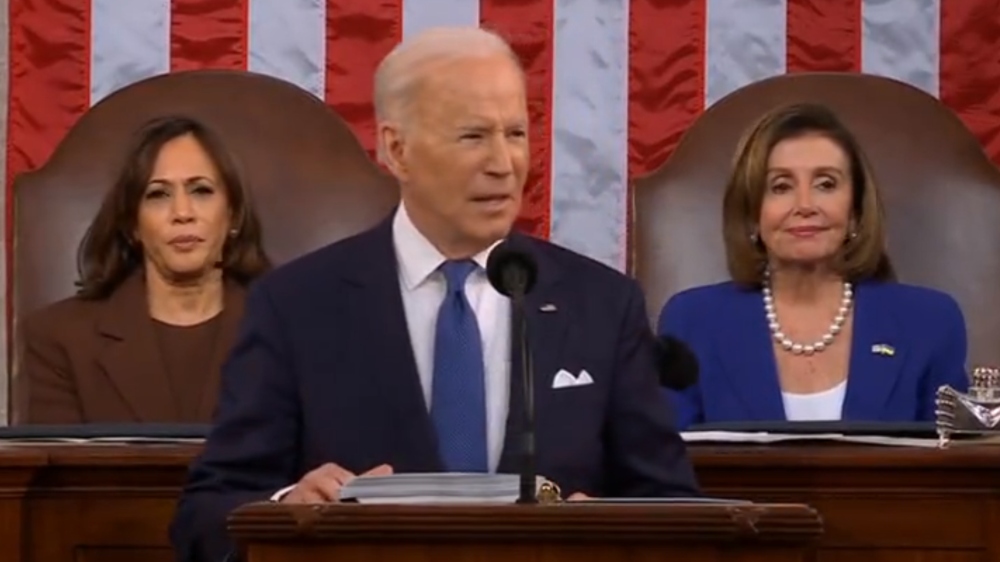
President Biden during Tuesday’s State of the Union address falsely claimed the billion-dollar gun manufacturing industry is the only industry in the U.S. that can’t be sued — when in fact, vaccine makers in the U.S. have total liability protection for injuries or deaths caused by COVID vaccines.
(Article by Megan Redshaw republished from ChildrensHealthDefense.org)
“Repeal the liability shield that makes gun manufacturers the only industry in America that can’t be sued,” Biden said. “These laws don’t infringe on the Second Amendment. They save lives.”
CNN fact-checked Biden’s claim and said it was “false.”
“Gun manufacturers are not entirely exempt from being sued, nor are they the only industry with some liability protections,” CNN said. “Under the 2005 Protection of Lawful Commerce in Arms Act, gun manufacturers cannot be held liable for the use of their products in a crime.”
But gun makers can be held liable for “negligence, breach of contract regarding the purchase of a gun or certain damages from defects in the design of a gun.”
According to CNN:
“Other industries also have some exemptions in liability. For example, vaccine manufacturers cannot be held liable in a civil suit for damages from a vaccine-related injury or death. And for the next four years, pharmaceutical companies developing the Covid-19 vaccines will have immunity from liability under the 2005 Public Readiness and Emergency Preparedness Act.
“Those who claim to have been harmed by vaccines may receive money from the government, not the pharmaceutical company, via the Vaccine Injury Compensation Program.”
Although CNN was correct that vaccine manufacturers cannot be held liable for harm caused by vaccines, those injured by COVID vaccines cannot seek compensation under the National Vaccine Injury Compensation Program (NVICP).
Instead, claims must be submitted through an obscure government program called the “Countermeasures Injury Compensation Program (CICP).” The CICP, which almost never awards money, is the only program that accepts claims related to COVID vaccines and other COVID countermeasures.
There are important differences between the two programs that make it more difficult to get compensation through CICP, which is run by the U.S. Department of Health and Human Services (HHS).
Vaccine makers are exempt from liability, the injured have no recourse
The NVICP, a special, no-fault tribunal housed within the U.S. Court of Federal Claims, handles injury claims for 16 common vaccines. To date, it has awarded more than $4 billion to thousands of people for vaccine injuries.
It is difficult to obtain compensation within the NVICP. Payouts, including attorneys’ fees, are funded by a 75-cent tax per vaccine. There is a $250,000 cap on pain and suffering. The proceedings are often turned into drawn-out, contentious expert battles and the backlog of cases is substantial.
The National Childhood Vaccine Injury Act of 1986 established the NVICP, and U.S. Supreme Court Decision, Russell Bruesewitz et al v. Wyeth et al, guaranteed vaccine manufacturers, doctors and other vaccine administrators almost always have no legal accountability or financial liability in civil court when a government-recommended or mandated vaccine(s) causes permanent injury or death.
As for the CICP, only about 8% of the people who have applied for compensation for vaccine injuries have ever received payouts. The statute of limitations for the CICP is one year from the time of injury and the program does not cover attorney fees.
The agency’s website outlines the parameters of the program, which is authorized by the Public Readiness and Emergency Preparedness (or PREP) Act.
In March 2020, HHS issued a PREP Act Declaration covering “COVID tests, drugs and vaccines,” providing liability protections to manufacturers, distributors, states, localities, licensed healthcare professionals and qualified persons who administer COVID countermeasures.
A PREP Act declaration is specifically for the purpose of providing immunity from liability, which is why people who are injured by COVID vaccines can’t seek redress via the NVICP.
To be compensated by the CICP for a COVID vaccine injury, it must be established, based on “compelling, reliable, valid, medical and scientific evidence,” that the injury or death was directly caused by the vaccine.
The program provides compensation only for medical expenses, lost employment income and survivor death benefits as “the payer of last resort,” covering only what remains unpaid or unpayable by other third parties such as health insurance.
According to Business Insurance Holdings, the CICP has collected 3,321 claims alleging injuries or deaths from COVID vaccines.
A detailed chart of alleged injury claims filed with the CICP includes anaphylactic shock, myocarditis and blood-clotting disorders. Other conditions listed involve claims affecting virtually all major health systems including appendicitis, hearing loss, kidney injury, arthritis and depression.
As of Feb. 1, the CICP had approved only one COVID vaccine-related claim, but that claim has not been paid out.
Since the program’s inception in 2010, 7,033 claims have been filed, but only 29 claims were compensated, with an average payout of around $200,000. The other 452 claims (91.4%) were denied. Ten claims won approval but were deemed ineligible for compensation.
According to the most recent data from the Vaccine Adverse Reporting System, the primary government-funded system for reporting adverse vaccine reactions in the U.S., there have been 24,827 deaths related to COVID vaccines reported as of Feb. 25. Of those deaths, 11,312 cases occurred within the U.S. and 22% occurred within 48 hours of vaccination.
The low number of applicants to the CICP fund for injuries or death from the COVID vaccine suggests people don’t know the program exists.
Families could wait ‘many many years’ for compensation if injury claim approved
According to Sean Greenwood, a vaccine injury attorney in Texas, even if the family does get an approved claim through CICP, they could wait “many many years” to receive compensation.
As The Defender reported Feb. 25, a family whose 21-year-old son developed a life-threatening reaction to Pfizer’s COVID vaccine has been waiting six months to learn if the U.S. government’s CICP will help cover their son’s medical bills.
The family of Kartik Bhakta in August 2021 submitted a claim on behalf of their son. So far, the claim has been ignored. Bhakta’s parents quit their jobs to take care of Bhakta — who is unable to return to medical school — and do not know how they will continue to pay for their son’s medical expenses.
Asked what the family would do if denied assistance, Bhakta’s father replied, “I don’t know. Then why is the government forcing us to take a vaccine if they’re not taking responsibility?”
Kendra Lippy was a healthy 38-year old woman — until she got the Johnson & Johnson (J&J) shot.
Lippy was diagnosed with severe blood clots that subsequently sent most of her organs into failure. She also was left without most of her small intestine and more than $1 million in medical bills that she said the federal government should compensate her for.
Lippy’s case was one of the six that led federal agencies to temporarily pause the J&J shot in mid-April. Her blood clots developed in March. She was hospitalized for 33 days, including 22 days of intensive care.
Lippy wants to see a federal compensation system that is fair to her and others who are harmed by COVID vaccines.
Because the government shielded vaccine makers from liability, she can’t sue J&J. She also doesn’t have a legitimate legal route to sue the government.
Biden extends national emergency to protect COVID vaccine manufacturers
As countries around the world drop COVID restrictions and downgrade the virus to “flu-like status,” Biden on Feb. 18 announced the U.S. national emergency declared in March 2020 for COVID will be extended beyond March 1.
Citing the ongoing risk to “public health and safety” posed by the virus, Biden told House Speaker Nancy Pelosi (D-Calif.) — in a letter released by the White House — there “remains a need to continue this national emergency.”
Biden wrote:
“The COVID-19 pandemic continues to cause significant risk to the public health and safety of the Nation. More than 900,000 people in this Nation have perished from the disease, and it is essential to continue to combat and respond to COVID-19 with the full capacity and capability of the Federal Government. Therefore, in accordance with section 202(d) of the National Emergencies Act (50 U.S.C. 1622(d)), I am continuing the national emergency declared in Proclamation 9994 concerning the COVID-19 pandemic.”
“For this reason, the national emergency declared on March 13, 2020, and beginning March 1, 2020, must continue in effect beyond March 1, 2022,” Biden wrote in a second statement released by the White House for publication in the Federal Register.
The emergency would have been automatically terminated unless, within 90 days prior to the anniversary date of its declaration, Biden notified Congress of his intent to continue it.
Extending the “national emergency” keeps COVID vaccines covered under the PREP act, which allows manufacturers to escape liability for the harms caused by their products.
According to Greenwood, once the government approves the COVID vaccine for children under 5 years old and pregnant women, compensation requests will move over to the NVICP.
It is unknown whether CICP claimants will also be able to file in the NVICP if the COVID vaccine is added to the program.
Read more at: ChildrensHealthDefense.org
Submit a correction >>
Tagged Under:
big government, Big Pharma, compensation, conspiracy, corruption, deception, Joe Biden, liability, lies, pandemic, pharmaceutical fraud, traitors, vaccine damage, Vaccine deaths, vaccine injury, vaccine wars, vaccines
This article may contain statements that reflect the opinion of the author
RECENT NEWS & ARTICLES
VaccineDeaths.com is a fact-based public education website published by Vaccine Deaths Features, LLC.
All content copyright © 2018 by Vaccine Deaths Features, LLC.
Contact Us with Tips or Corrections
All trademarks, registered trademarks and servicemarks mentioned on this site are the property of their respective owners.

